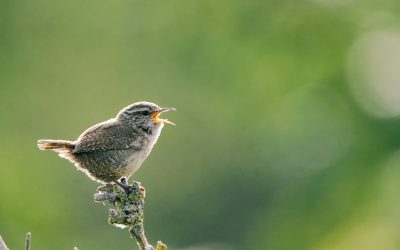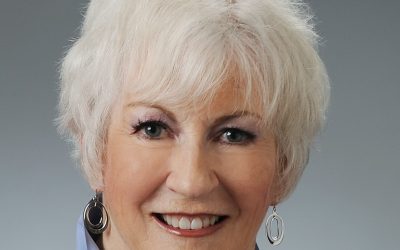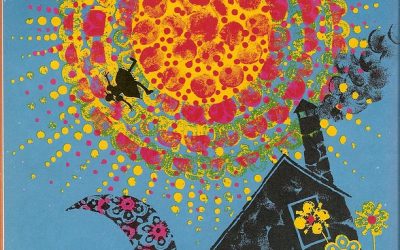This article was originally published in the Rhode Island Music Educators’ Review Vol. 65 No. 2 (Winter 2023). It is reprinted here with permission of the Rhode Island Music Education Association.
My introduction to SongWorks was a webinar offered through the Boston Area Kodály Educators in Fall of 2021. Although I wasn’t able to attend the live webinar, I was able to watch it asynchronously, and I remember being inspired by the facilitators, Molly Feigal and Lisa Schoen, as they taught lessons on Strauss’ “Blue Danube,” the third movement of Vivaldi’s “Autumn,” “Here Comes the Sun” by the Beatles, and several other pieces and folk songs. Even in this virtual setting, it was clear that joy was inherent to the SongWorks pedagogy. I loved the playful approach and techniques to teaching folk songs and listening repertoire from diverse genres, and I was intrigued by the idea of “song mapping.” I also remember wondering how it was that twenty years into my music education career, I had not heard of SongWorks previously. I decided to find out more, so I joined the SongWorks Educators Association at a very reasonable rate and decided to register for the Level 1 certification course at the University of Wisconsin at River Falls in July 2022.
Brief History of SongWorks
This pedagogy has a wider following in other parts of the United States, especially in the Midwest, West Coast and Texas. There is also a following in Canada and Japan. Some of this has to do with the history of SongWorks and the legacy of its founding educators.
SongWorks pedagogy evolved from the ideas and work of Mary Helen Richards, and her work was inspired in large part by her correspondence with Zoltan Kodály and studies in his method. Richards contacted Kodály, then visited Hungary in 1962 to observe music lessons and interview music teachers. Kodály gave her these four key recommendations:
- Base your teaching on folksongs of your language and culture.
- Study your language, especially triplet patterns and anacruses.
- Teach children according to the way they are in your country.
- Just as they learn to speak by speaking every day, children must sing every day to learn music. (Bennett, 2022, p. 1)
Richards observed children in general education classrooms to study how they learn (“watch the children” has become an important mantra among SongWorks teachers). In 1970, she founded the Richards Institute for Music Education and Research and called her program “Education Through Music” (ETM). As Richards experienced failing health later in her life, she left the trust of ETM to ten faculty members from Canada and the U.S. Due to differences, the trust dissolved, but six original faculty members went on to form Music EdVentures, Inc. (MEI). In 2016, MEI renamed itself to SongWorks Educators Association. Peggy Bennett and Doug Bartholomew were two of Richards’s original trust faculty members, and they have collaborated in writing SongWorks textbooks for music teachers: SongWorks I: Singing in the Education of Children, and SongWorks II: Singing from Sound to Symbol. SongWorks pedagogy has gradually been spreading through schools, conferences, and courses. The stated purpose of the SongWorks Educators Association is “to nurture the vitality of teachers and learners as we:
- Promote playful teaching and vibrant learning through the use of SongWorks principles and practices.
- Inspire the inherent playfulness, responsiveness, and musicality in teachers and learners.
- Embrace a community of life-long learners who grow together with care, respect, and grace.” (SongWorks Educators Association, 2023)
Through the five-day certification course, I was able to learn more about the ways of SongWorks. These are my main takeaways:
- SongWorks is a principles-based music education pedagogy with kindness and respect for the child at its very core.
- Play and imagination are important components of this technique, as seen in the use of singing games and the thought-provoking questions teachers ask their students as they introduce a song.
- Learning is holistic and constructive, and learners are encouraged to be responsive – to respond to music through singing, movement, instrument play, and game play.
- Music literacy is approached through a progression of sound to symbol.
Principles-Based
SongWorks I introduces seven Principles of Teaching and Learning, and on each day of the Level 1 certification course, we focused on one or two of these principles. At least two of these principles have respect of the child at their very core:
- Principle 1: Students have the right to be treated with respect and dignity for their ideas, skills, and stages of development.
- Principle 2: Students deserve an engaging learning environment in which they feel safe enough to demonstrate freely their understandings and skills through various types of participation. (Bennett & Bartholomew, 2014, 29-44)
Throughout the week, we experienced songs the way the children would, taught by faculty members Betty Phillips, Molly Feigal, Esther Campbell, and Mary Stockum. We also had daily opportunities to observe SongWorks lessons taught to a group of children by Molly Feigal. In the adult lessons and in the observed lessons, participants were invited by name to participate in the singing games. On the first day of observation, I noticed that the children were a little nervous in the understandably awkward situation of participating in a lesson while being observed by a bunch of adults. The teacher helped them to feel safe and welcomed through a combination of respectful and affirming language and fun and engaging activities, like the follow the leader game, “Come and Follow Me,” and creative movement to Strauss’ “Blue Danube.” As a teacher in a Responsive School district, I also noticed that the language and prompts in a SongWorks lesson are very much like the language and prompts in a Responsive Classroom lesson. I asked Molly Feigal about this, and she explained that, “Good teaching is good teaching, but this is SongWorks.” In other words, SongWorks and Responsive Classroom have developed independently of each other, but because they share respect for children, they also share similar respectful language and prompts.
Not all students were comfortable enough to participate right away. In fact, in the first lesson, every single student passed on the opportunity to sing “Hello ____, How are you?” (sung to the tune of “Skip to My Lou”) the first time they were asked. The teacher invited each of them to sing to three other children, but offered them the option to pass for now, “Would you like to sing, or not yet?” The right to pass was an important option to help them feel safe, and as a result, the students quickly became comfortable enough to sing, move, and volunteer. I noticed that in spite of a large age-range and some daily turn-over, the students were able to form a welcoming, kind community with the help of their teacher. They were all able to sing and respond to the activities because they felt safe and respected.
Play and Imagination
On the first day of the course, Esther Campbell began a discussion on the importance of play in SongWorks practices by reading the quote, “Play is the work of the child.” Although this idea is not a specific principle from SongWorks I, it is an important part of SongWorks teaching and learning:
“During SongWorks teaching, learning often takes place in the form of singing games. The games provide the context for student immersion in social interaction, movement, language, thinking, listening, and music. Singing activities are designed to be engaging and enjoyable, and at the same time they provide groundwork for serious progressive study and skill development. Challenges that elicit maximum responsiveness from students are constructed by the teacher and provided through the singing games.” (SongWorks Educators Association, 2023)
As the week went on, I noticed that many of the songs were either taught through a singing game or were accompanied by some sort of teacher-devised creative play. Through games and creative play, students learn so many skills – how to take turns, listen, sing alone, sing with others, move, study a figure, learn the words and the meaning of the words, communicate, be creative, etc. All the while, they are having fun, they are engaged, and they are alert. They might not even realize they are doing important music work. Yet, both the game play and the singing prime their brains for learning. Additionally, they are developing positive feelings and associations with the song. In the words of Mary Poppins, “In every job that must be done, there is an element of fun. You find the fun and ‘snap’, the job’s a game.” If given a choice, most of us would rather play a game than do a chore. Additionally, the games help the children to foster positive relationships with their peers. They are building a community by singing and playing in a fun, collaborative way. Play in learning is especially important for our students who have missed out on important play and social experiences during the pandemic.
Holistic and Constructive
Learning is holistic and constructive in a number of ways. Just as children’s first exposure to language occurs through exposure to whole words, phrases, and sentences, in SongWorks teaching, children are first introduced to a complete song in the context of the game or story. This differs from some other pedagogies in which students learn a phrase at a time through echo-singing. SongWorks teaching moves from a broad understanding to more detailed information; from whole to smaller parts. Additionally, songs are taught holistically with respect to the whole child. Each child comes to the lesson with their own experiences and background knowledge. They construct their understanding of the songs, skills, and concepts, and this understanding reflects their own background and schema.
In addition to games and creative play, students are encouraged to make and respond to music through singing, moving, and instrument play. During the week-long certification course, we had occasions to use Orff instruments as well as ukuleles. In the future, I am excited to explore two instrumental teaching approaches founded in SongWorks pedagogy: Recorder EdVentures by Marilyn Winter and Good Dog Ukulele School by Judy Fjell.
Sound to Symbol
Singing, listening, and responding to songs through a singing game or another engaging song introduction eventually lead to the study of the song(s) and the relationships between the sounds in the song. At some appropriate point, children sing, listen, and move, then “map” the sounds and sound clusters, or “aural, figural groupings” that they hear (Bennett, 2022, p. 5). Song mapping is a kinesthetic and/ or visual line representing the music which is created by the child while singing or listening to the music (Bennett & Bartholomew, 2014, p. 95). Now that I have had the opportunity to do some song mapping with my students, I can share that the students love song mapping. While they are mapping, they are listening to the music in a very thoughtful, focused way, and they are making discoveries about the music as they create their map.
For example, they may be finding figures or sections that repeat. Their map demonstrates what they know about the music. Maybe their map shows the contour of the melody, musical figures, or the form. Eventually through more repetition, listening, and singing work that may include additional SongWorks techniques and practices, (such as chinning, anitphonning, song dotting, figure-ground work, etc.) students build and develop a foundation for song study. This can eventually lead to more formal music literacy skills such as solfège and rhythm syllable work. This progression and the SongWorks techniques are utilized with respect to how children learn. This progression of “sound to symbol” is studied in more detail in the SongWorks Level II certification course.
I am enchanted with this pedagogy. I love that it is built on a foundation of respect for the child. The use of play techniques and imagination are highly engaging and rewarding, and the pedagogy is designed with respect to how children learn. Through singing, movement, instrument play, and focused listening, a path to music literacy may be forged. Through SongWorks practices and principles, a music class becomes a caring community of joyful and responsive music makers.
Principles of Teaching and Learning
SongWorks 1
1. Students have the right to be treated with respect and dignity for their ideas, skills and stages of development.
2. Students deserve an engaging learning environment in which they feel safe enough to demonstrate freely their understandings and skills through various types of participation.
3. Student learning is the responsibility of both teachers and students.
4. Learning is holistic and constructive.
5. A teacher’s attitudes, behaviors, and methodologies should be compatible.
6. Accurate and constructive feedback helps students become independent learners.
7. Quality of life is enriched through music and singing.
Principles of Teaching and
Learning Music
SongWorks 2
1. The major goal of music study is the development of a responsiveness to music.
2. The musicality that is critical to music performance is just as important in music study.
3. The fundamental skill in music behavior is listening.
4. The way music sounds rather than how it looks guides the selection and presentation of patterns for study.
5. A distinction exists between skills and concepts that are musically easy and those that are musically simple.
6. Song provides direct involvement for making music and studying sound relationships.
References
Bennett, P. D. (2022). Origins, Principles, and Practices of SongWorks: A Brief Overview. Unpublished booklet.
Bennett, P. D. & Bartholomew, D. R. (1999). SongWorks 2: Singing from sound to symbol. Belmont, CA: Wadsworth.
Bennett, P. D. & Bartholomew, D. R. (2014). SongWorks: Singing in the education of children (2nd ed.). SongWorks Press.
SongWorks Educators Association. (2023). About Us. Retrieved January 1, 2023, from https://songworkseducatorsassociation.com/about-us/.
Special thanks to Alice Nordquist, Lisa Schoen and Lori Jones for their help in editing this article! To find out more about SongWorks, visit https://songworkseducatorsassociation.com/ or consider registering for the SongWorks annual conference in Boston on March 17-18, 2023* at https://songworkseducatorsassociation.com/conference/.
*Editor’s note: Registration for our 2024 Virtual Conference Series opens January 1, 2024.
Susan Winterbottom-Shadday teaches music in Bristol, RI. A graduate of the New England Conservatory and SUNY Stony Brook, Susan has completed level 1 certification in Kodály and SongWorks pedagogy, as well as extensive professional development in arts integration. A former Guiteras Teacher of the Year and successful grant writer, Susan serves on the advisory committee for the RI Philharmonic Link Up program. She is an active freelance hornist, private horn teacher, and has taught studio lessons at Roger Williams and Salve Regina Universities. Susan is also a proud mom and grandmother and can be reached at susan.winterbottom@bwrsd.org.




